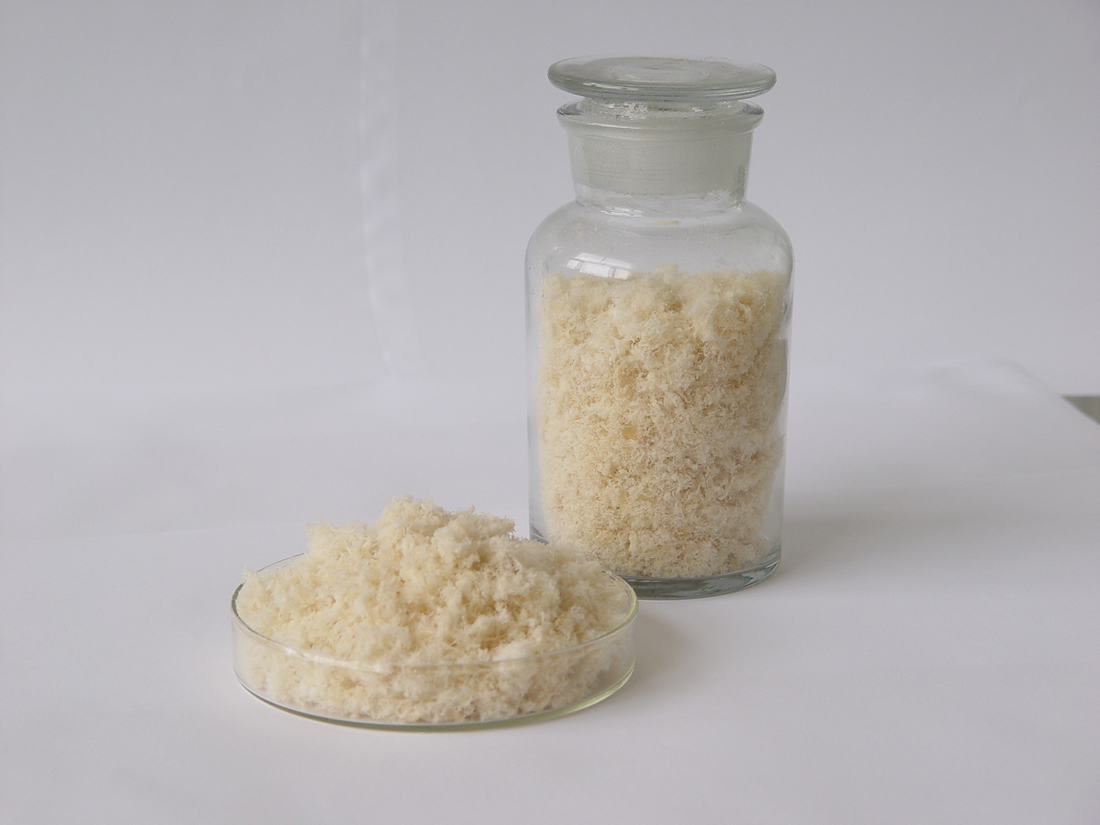
Alginic acid is a natural polyuronic acid that exists in the cell walls of kelp, macroalgae and other brown algae. Chemical formula (C6H8O6)n. A linear copolymer formed by 1,4-bonding of β-D-mannuronic acid (M) and α-L-guluronic acid (G), the content of G and M in alginic acid has a significant effect on the gelling properties of fiber. Alginic acid exists in the cytoplasm in its natural state and acts to strengthen the cell wall. Alginic acid combines with various cations in seawater to form various alginates. The extract obtained from seaweed is usually sodium alginate. Sodium alginate has the characteristics of thickening, suspending, emulsifying, stabilizing, forming gel, forming film and spinning fibers. It has a long and wide range of uses in food, paper and cosmetic industries, especially in the field of biomedical engineering in recent years found to be of great use.
Alginic acid is pale yellow filamentous or powdery, odorless, almost tasteless, insoluble in water, methanol, ethanol, acetone, chloroform, soluble in alkali hydroxide solution, and helps to suspend, thicken, emulsify, bind, etc. effect.
(The above content is taken from Baidu Encyclopedia, if there is any infringement, it will be deleted immediately)
Executive standard:
JECFA standard (INS No.400) alginic acid, Q/SJJ 0008S-2021 alginic acid.
Alginic acid is for export, and can be customized according to customer requirements.
